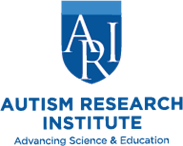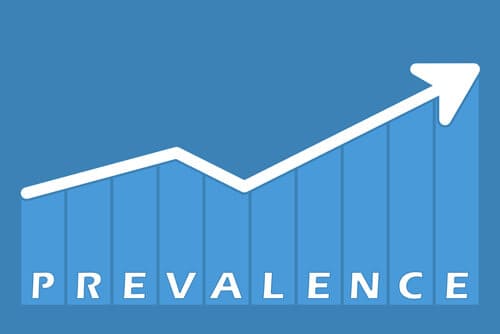The ability to be more confident and prepared for life in a college setting is an invaluable part of transitioning into higher education. This transition can make or break how students feel about life after college and set the stage for their academic future.

While many high school juniors are simply visiting colleges throughout the summertime, others decide to experience college firsthand by living on campus and enrolling in a course. A summer session on campus can provide flexibility and more opportunities for social development as well as individualized attention from faculty and staff. This setting is optimal for students on the autism spectrum to explore and manage their newfound freedom and to find comfort in developing a routine that best fits their needs.
Discovering how to balance all aspects of college life while developing the necessary skills to live independently can be challenging for any student. This transition is even more complicated when difficulties in executive functioning and social skills come into play.
Launching the College Program for Students with Autism at Marshall University
The College Program for Students with Autism recognizes that jumping into a college environment without prior preparation can be overwhelming for students on the autism spectrum.
The program launched in 2002 and, after seeing great results with our undergraduate and graduate students, we developed an additional support program for rising high school seniors in 2007.
We Recognized the Need for the Program through Family Efforts
In many respects, creating the summer experience program mirrored how the College Program itself was first inducted – by family efforts. The idea for the program came when a family contacted Marshall University about a campus visit for their son with ASD. They wanted him to experience what it was like to attend college with the proper supports in place.
With time, the summer transition program services became more refined with the addition of community-based activities and social skill development groups. Now, for five weeks, students involved in the program live in the dormitories, eat in the cafeteria, take one college-level course, and participate in social skill development groups and activities.
What Student’s are Saying
One of the prior participants, Ellen, summarizes her first experience in the program:
“Imagine you are about to give a speech, and everyone in the audience has a blank face: no eyes, nose, or mouth. It’s impossible to tell what they’re thinking, but you can feel them watching you, judging you. You want to sink into the floor and disappear; you’re afraid to make a single mistake for fear that they’ll reject you. You feel scared, awkward, and trapped. You stutter, scared stiff and frozen to the spot, while trying to seem “animated.” This scene may seem like something out of a horror film, but for me, this is my life with Asperger syndrome.
In the summer of 2010, I attended a summer support program offered through The West Virginia Autism Training Center’s College Program for Students with Autism at Marshall University. I have severe social anxiety when speaking in front of crowds, so I decided to confront my fears and take a public speaking class. The act of public speaking in a classroom setting is hard for me because I can see everyone’s faces and know that they’re judging me. Although peer review is a critical component of the course, I’m always worried about whether or not I am boring or confusing my classmates. Regardless if someone says, “don’t worry about what other people think about you,” I do. I know that I’ll see my classmates again for the next few weeks and have to endure it if they laugh at me or mock me.
While I’d be lying through my teeth if I said I now enjoy public speaking, it became more tolerable with practice. I found that people weren’t as harsh critics as I once thought. The professor was kind and understanding of my issues, and I ended up with a B in the class!
In my day-to-day life, I found that creating a routine and sticking to it helped lessen my anxiety. For example, the dining hall and recreation center had regular hours, so I could easily build a schedule around times to eat and work out. I filed any handouts and lecture notes in the accordion file section of my binder and used color-coded notebooks to stay organized. My syllabus told me the dates for exams, and when homework assignments were due, so I didn’t have any unpleasant surprises. Contrary to popular belief, between walking around campus, eating salads at the dining hall, and working out at the rec center, I ended up losing weight!
I soon became accustomed to the social scene at college and even grew to love it, something that had never happened to me before. Because of this experience, I now feel that the stereotypes about college life aren’t always accurate. Unlike high school where there are cliques of people who can be mean and treat you as less of a person, college students accept you for who you are. Now, I am accepted. I met people easily through the summer program, and am sure others can get to know people with similar interests in the numerous clubs offered on campus. My advice for any potential college student is not to be afraid to branch out a little; get involved in something that you usually wouldn’t. That’s how people grow and meet other people. Above all else, don’t be afraid to have fun!”
Applying This Lesson to Your College
If you or a loved one are about to move into higher education, ask your college of choice if they have accomidations in place to guide that transition. If you would like to contact the coordinators at Marshall College for more information, please do so here.
Learn More
About the Authors
Ellen Rosenthal is a freshman attending Marshall University. She is an honors student planning on pursuing a B.A. in Psychology. Her experience transitioning into higher education through the summer support program for high school students with Asperger’s Syndrome shaped her decision to attend Marshall. Ellen enjoys swimming, reading, and making jewelry. One of her favorite things to do is explore the outdoors!
Rebecca Hansen is the Coordinator for the College Program for Students with Autism. Her educational background is in student affairs counseling and she is currently pursuing her Doctorate of Education in Leadership Studies at Marshall University. She has worked with the West Virginia Autism Training Center for more than seven years. Rebecca specializes in using a positive behavioral support approach to serving college students on the autism spectrum.
Study finds that employees with autism are less likely to exhibit “bystander” effect
Employees with autism spectrum disorders (ASD) may contribute to businesses in a unique way because they are less likely than neurotypical individuals to exhibit the “bystander” effect, according to a new
Prevalence of autism in adults increasing rapidly in the U.S.
The prevalence of autism spectrum disorders (ASD) among adults in the United States is rising rapidly, according to a new study. Eric Rubenstein and colleagues analyzed a random sample
Autistic adults show enhanced generosity toward strangers
Adults with autism spectrum disorders (ASD) tend to be more generous to strangers than their neurotypical peers are, according to new research. In the study, Paul Forbes and colleagues explored differences
From Special to H.A.P.P.Y.
Peter Vermeulen, Ph.D., considers a positive approach to psychoeducation for autistic individuals. He draws on over 25 years of experience to illustrate contemporary changes in autism intervention focus and discourse. The speaker
Older adults with ASD at higher risk for many health issues
A large-scale study from researchers in Sweden and Poland indicates that older adults with autism spectrum disorders (ASD) are at significantly higher risk than their non-autistic peers for a range of
LGBTQIA+ and Autism
Contemporary research on the intersection of autism, sexuality, and gender identity asserts that autistic individuals are more likely to identify as LGBTQIA+ than the neurotypical population. Similarly, the prevalence of autism is






